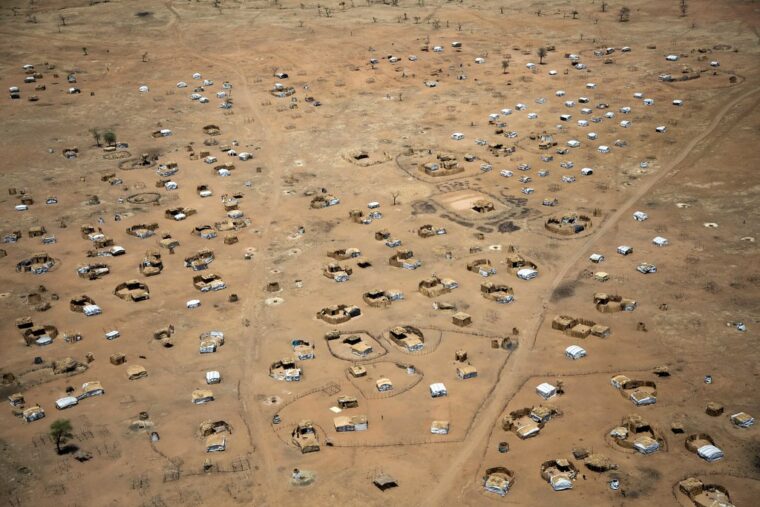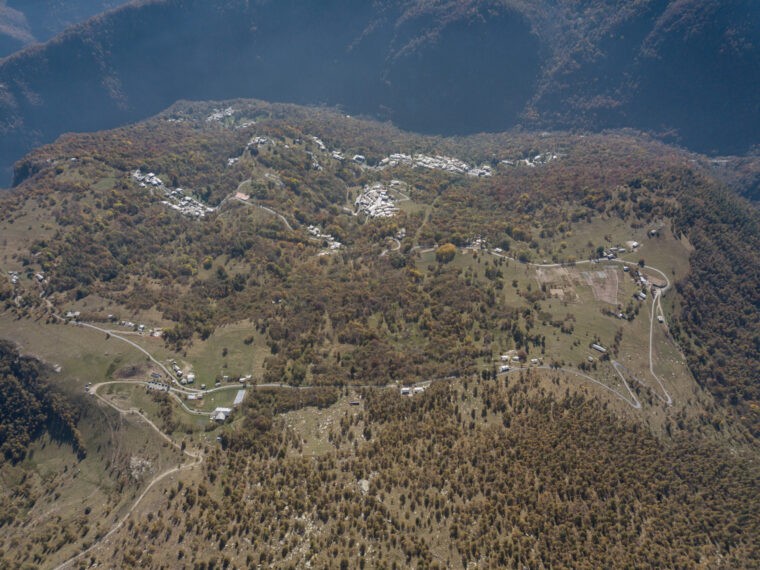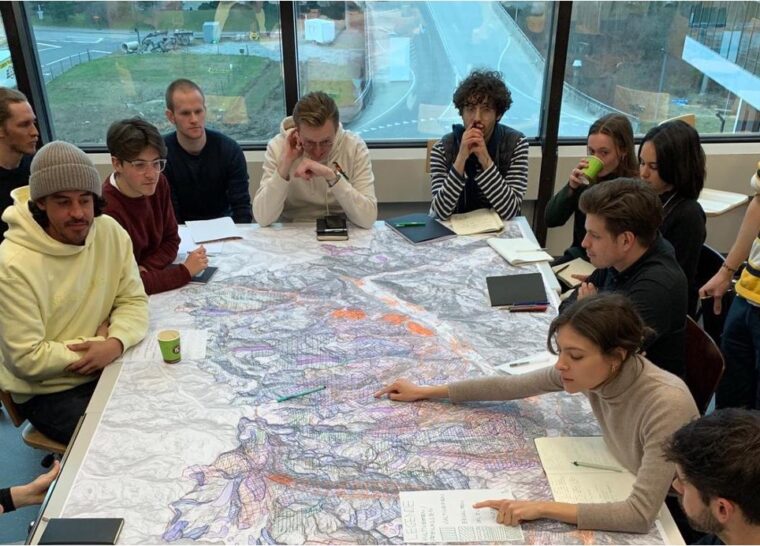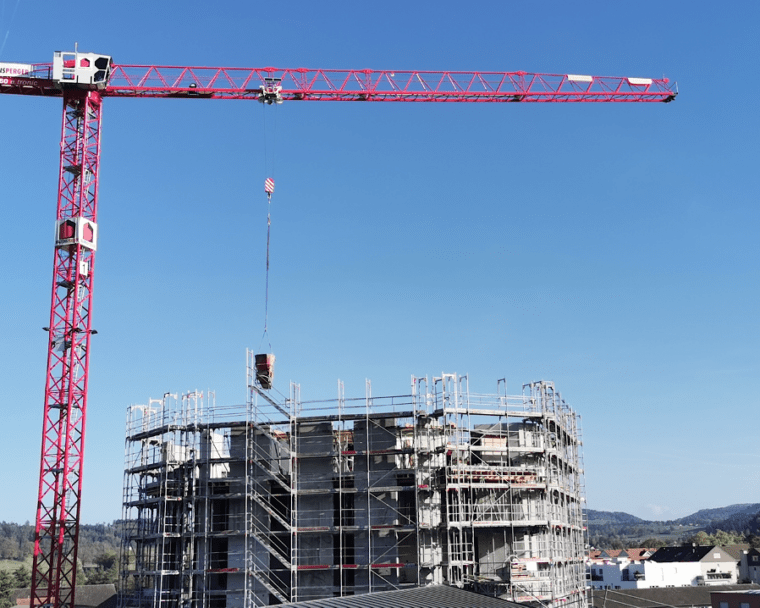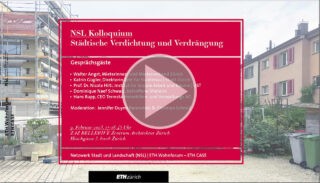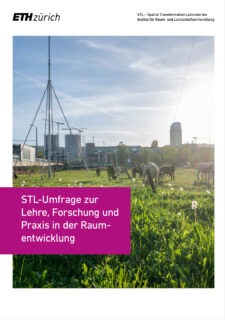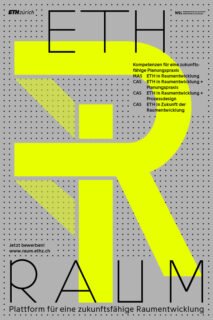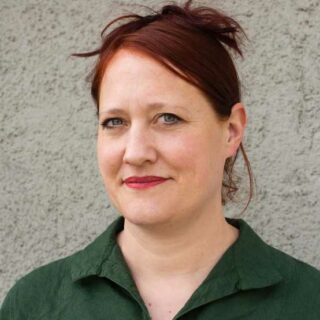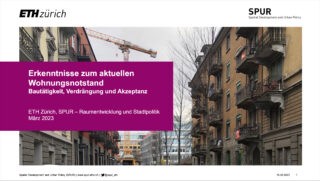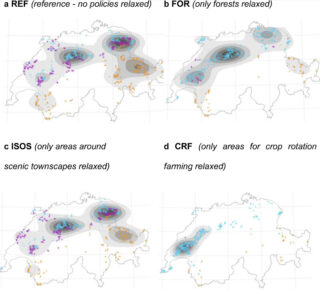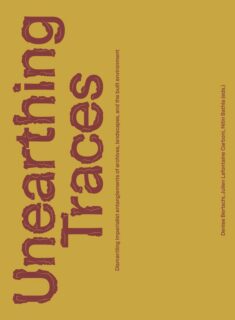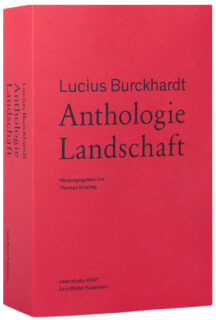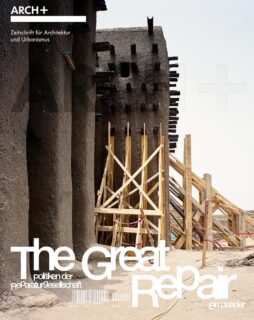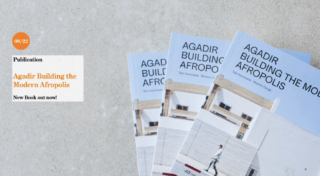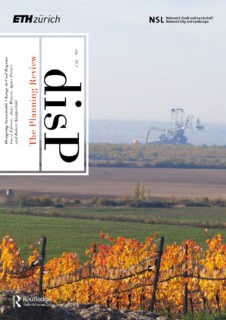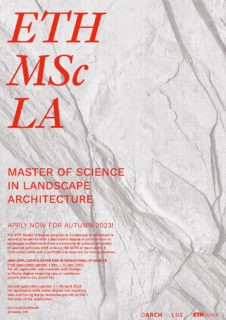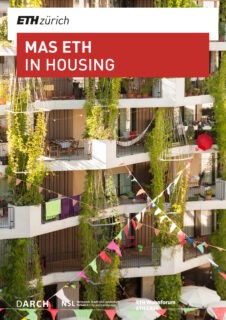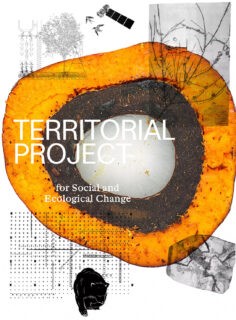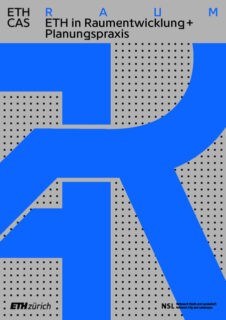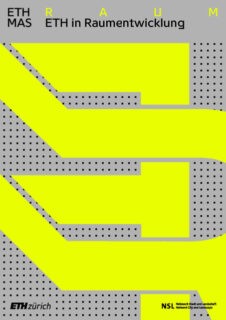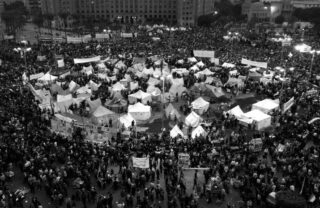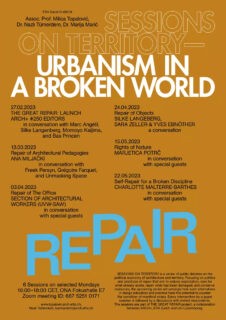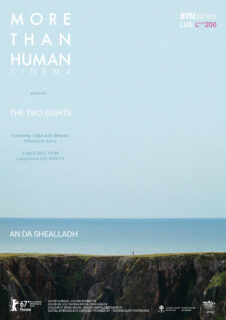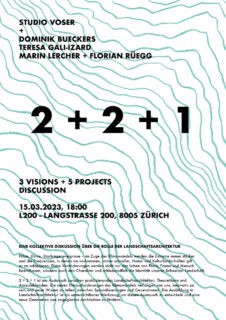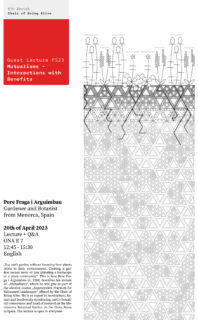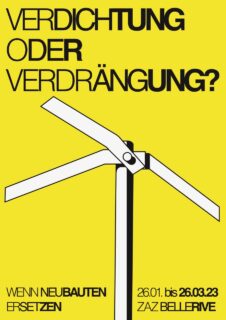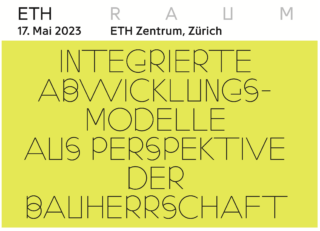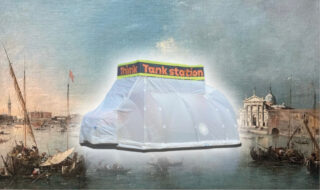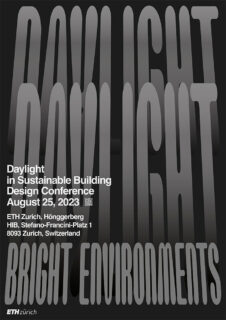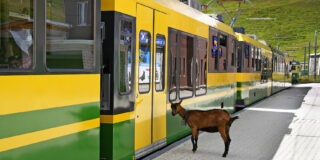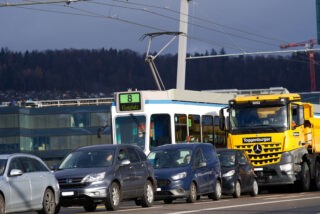Sehr geehrte Lesende
Der Landschafts- und Klimawandel bewegt uns alle. In den Bergen macht er sich zuerst und heftig bemerkbar. Und Flüchtlingssiedlungen sind aufgrund ihrer prekären baulichen und sozioökonomischen Situation besonders gefährdet.
Wir hoffen, unsere Berichte und Veranstaltungen inspirieren Sie!
ETH Wohnforum – ETH CASE, Netzwerk Stadt und Landschaft (NSL)
Sie haben das Kolloquium verpasst? Die Filmaufnahme ist jetzt online! Wir befinden uns in einer der grössten Abbruchwelle der Stadt Zürich. Diese dramatische Entwicklung polarisiert, die sozialen Auswirkungen auf die Stadt Zürich (und anderswo) muss diskutiert werden. Erreichen wir das erwünschte Ziel mit Abbrüchen von erschwinglichem Wohnraum? Wie nachhaltig ist diese Strategie aus einer ökonomischen, ökologischen und sozialen Perspektive? Unter welchen Bedingungen sind Ersatzneubauten sozial und ökologisch legitim? Die Ausstellung im Zentrum Architektur Zürich (ZAZ) läuft noch bis am 26. April 2023.
A discussion with Shubhra Gururani, Christian Schmid, Michael Lukas, Giulia Torino, Metaxia Markaki, and Faiq Mari
How do «peripheries» form? And how does urbanization generate processes of peripheralization? Today, novel patterns of urbanization are crystallizing in agricultural areas and in remote landscapes, challenging inherited conceptions of the urban as a bounded and dense settlement type. While certain territories of extended urbanisation experience growth, others are affected by peripheralisation, experiencing deep socio-economic and ecological restructuring, marginalisation and inequality, and the re-articulation of power and privilege. To the podcast
Die Raumentwicklung ist ein komplexes Themenfeld im stetigen Wandel und eine interdisziplinäre Diskussion über dessen Zukunft nötig. Um auf künftige Bedürfnisse der Planungspraxis einzugehen, wurde eine umfassende Befragung zu Forschungsthemen und Lehrinhalten durchgeführt. Die Resultate verdeutlichen den Wunsch nach einem allgemeinen «Mehr» an Lehre und einer stärkeren Ausrichtung der Forschung an drängenden Themen der Planungspraxis, insbesondere «Klimawandel und Städtebau» sowie «Instrumente der Schweizer Raumplanung». Die Studienergebnisse stehen zum Download zur Verfügung.
EiR PD Joris Van Wezemael | Spatial Transformation Laboratories (STL)
ETH RAUM ist die neue Plattform der ETH Zürich, mit einem breiten Angebot in der Raumentwicklung. In einem MAS und drei neuen CAS-Programmen stehen Raumentwicklung, Planungspraxis, Prozessdesign und die Stadt als Laboratorium der Zukunft im Zentrum. Das Bewerbungsfenster ist bis 30. April 2023 geöffnet. Die Programme starten im Herbst 2023. Weitere Informationen unter der Webseite raum.ethz.ch.
Prof. Maria Conen | Architecture and Housing
Maria Conen studied architecture at EPFL and ETH Zurich. After graduating, she was doing an MAS in History and Theory of Architecture, ETH Zurich. In 2011 she founded Conen Sigl Architekt:innen with Raoul Sigl. Working with existing structures is a key focus and main interest in their work. They worked on different exhibitions designs as for the Manifesta 11. Currently they are planning projects in and around Zurich and they finished the renovation of the Kunsthaus Glarus. She was teaching with Adam Caruso at ETH Zurich and as a guest professor at TU Munich, TU Dresden, and at EPFL. She is in the Institute of Design and Architecture (IEA), and part of the NSL.
Apply now for Autumn 2023! The ETH Master‘s degree programme in Landscape Architecture is aimed at students with a Bachelor‘s degree in architecture or landscape architecture from a university or a Swiss university of applied sciences with at least 180 ECTS or equivalent. A motivation letter and a portfolio are required for the application. Apply by 15 December 2022 or 30 April 2023. Programme website
Continua
ETH Wohnforum – ETH CASE | Application until 30 June 2023 (2nd round).
The MAS focuses on the assessment of housing challenges and on the affordability, effectiveness and sustainability of a wide range of housing and neighbourhood development strategies pursued by municipalities, cooperatives, local governments, non-governmental and governmental authorities and international organisations in different countries and contexts.
Continua
ETH Zürich D-ARCH LUS and EPFL ENAC HRC joint master programme | Application until 31 May 2023.
The Territorial Project for Social and Ecological Change
Urban and territorial design has acquired a new meaning and urgency. From drivers of progress to the source of planetary hazards, the impacts of cities and urbanisation processes are being recast in the public sphere.
Continua
ETH RAUM | Bewerbung bis 30. Juni 2023 (2. Runde).
Das CAS in Raumentwicklung und Planungspraxis behandelt die aktuellen und zukünftigen Herausforderungen der Raumentwicklung sowie zielführende Methoden und Verfahren für eine innovative Planungspraxis. Der Studiengang ist als Denklabor für raumrelevantes Handeln und Entscheiden konzipiert.
Continua
ETH RAUM | Bewerbung bis 30. Juni 2023 (2. Runde).
Der MAS in Raumentwicklung befasst sich mit der Gestaltung und der Nutzung unseres Lebensraums und den sich darin abspielenden gesellschaftlichen, politischen, ökonomischen und ökologischen Prozessen.
Continua
Guest lecture, 28.4., 13:45–15:30 | ETH Zürich, Hönggerberg, HIL E 9.
Continua
4. März–26. November | Ausstellung im Museum Burghalde Lenzburg.
Continua
On Mondays, 16:00-18:00 | ETH Zürich, Oerlikon, Neunbrunnenstr. 50, ONA E7.
Sessions on Territory is a series of public debates on the political economy of architecture and territory. Continua
3 April 2023, 19:00 | L200, Langstrasse 200, Zurich.
The screening will feature THE TWO SIGHTS with director Joshua Bonnetta in presence for a Q and A.
Continua
Martina Voser im Gespräch mit Gästen | 3. Mai 2023, 18:00 | L200, Langstrasse 200, Zürich.
Die zeitgenössischen Herausforderungen aufgrund von Klimawandel und Verdichtung verlangen nach Adaption und Innovation. Continua
Guest Lecture + Q & A, 20 April, 12:45 – 15:30 | ETH Zürich, Oerlikon, Neunbrunnenstr. 50, ONA E7.
Pere Fraga i Arguimbau: Gardener and Botanist from Menorca, Spain.
«You can’t garden without knowing how plants relate to their environment. Making a garden is, to a greater or lesser degree, imitating a landscape or a plant community.»
Continua
Ausstellung 26. Januar – 23. April 2023 | Zentrum Architektur Zürich (ZAZ), Höschgasse 3, Zürich.
Continua
17. Mai 2023, 08:00 – 13:30 Uhr | ETH Zürich, Zentrum, HG F30, Audimax.
Ziel der Tagung ist es, integrierte Abwicklungsmodelle aus Bauherrensicht auf den Prüfstand zu stellen.
Continua
Biennale Venice, 17–19 May, Venice Biennale, Lido, Venice, IT.
Continua
8. Juni 2023, 9:00 – 18:30 | ETH Zürich, Zentrum, Audimax.
An diesem Kolloquium werden die sieben Forschungsgruppen des D-BAUG Leuchtturmprojekts «E-Bike City» nicht nur ihre vorläufigen Ergebnisse präsentieren, sondern auch die Teilnehmenden aktiv in die Gestaltung der Forschungsfragen einbeziehen. Continua
25 August 2023, 8:30-18:00 | Conference | ETH Zürich, HIB 52 Open Space, Hönggerberg.
Continua
5 September | ETH Zürich, Hönggerberg, HIT E 51.
Continua
6–8 September | ETH Zürich, Hönggerberg, HIT E 51, Wolfgang-Pauli-Strasse 27.
Continua
6. bis 8. December 2023 | ETH Zürich, Centre and Hönggerberg.
Video Links of the 7th December
Photographs and presentations of all three days
About
This colloquium brings together transport planning researchers and practitioners to reflect on the growth processes of western or industrialized societies by identifying, assessing, and operating their transport infrastructures.
Transport planning as a discipline and practice has supported the growth processes of western or industrialized societies by identifying, assessing, and operating their transport infrastructures. In the last 150 years it was able to solve the capacity problems arising from population and industrial growth by using some of the growing national incomes to build more or better infrastructures for the growing number of vehicles. The challenges and the time frame of the greenhouse gas (GHG) accumulation change the way our societies should respond both in terms of our speed and in terms of the scale of our actions.
This colloquium brings together transport planning researchers and practitioners to reflect on these issues. The range of issues and suggestions can help to formulate strategies strong enough to fulfill the commitments which our societies have entered.
Day 1 brings together former students and researchers of the Institute for Transport Planning and Systems (IVT). Younger academics will present on day 2, while more senior researchers and practitioners will conclude on day 3. They will reflect on their ongoing work and on their experiences. They will draw their conclusions for our policy making and planning. The open discussions during and at the close of the colloquium will help defining our agendas for the future.
Speakers
Kay Axhausen, ETH Zürich; Milos Balac, ETH Zürich; Oded Cats, TU Delft; Francesco Ciari, Polytechnique Montreal; Richard Emmerink, Schiphol Airport; Alex Erath, FHNW Muttenz; Martin Fellendorf, TU Graz; Pieter J. Fourie, Dr. sc. ETH, FCL Singapore; Daniel Hörcher, Imperial College London; S. Hörl, System X, Paris; P. M. Jones, UCL London; Matthias Kowald, FH Rhein-Main, Wiesbaden; Allister Loder, TU München; Tanvi Maheshwari, Monash University Melbourne; Arnab Majumdar, Imperial College London; Rolf Moeckel, TU München; Kai Nagel, TU Berlin; O. A. Nielsen, DTU Lyngby; Robert Schlich, SBB; Yoram Shiftan, Technion Haifa; Lijun Sun, McGill University Montreal; Martin Tschopp, ARE
Redaktionsteam
Silvia Converso, Institut für Landschaft und Urbane Studien (LUS), Landschaftsarchitektur
Melanie Fessel, Institut für Landschaft und Urbane Studien (LUS), Städtebau
Claudia Gebert, Koordinationsstelle NSL, Chefredaktion
Maarten Van Strien, Institut für Raum- und Landschaftsentwicklung (IRL)
Jan Westerheide, Institut für Landschaft und Urbane Studien (LUS), Städtebau
Caroline Winkler, Institut für Verkehrsplanung und Transportsysteme (IVT)
